Computer Science Alumni
If you are a Millersville University Computer Science Alumni, please update your contact information.
Welcome! The Department of Computer Science maintains a rigorous, state-of-the-art major in Computer Science and supports the Multidisiplinary Studies major's concentration in Data Science, as well as a minor in Computer Science and a minor in Data Science. The major in Computer Science is accredited by ABET. We have seven full-time faculty members and more than 250 majors.
We offer research and advanced undergraduate elective courses in computer graphics, computer networks, web application development, computer security, compiler construction, artificial intelligence, data mining, large-scale data analytics, game development, and parallel programming. The hardware and software in our laboratories are continually updated to support our student and faculty needs. By pursuing a Bachelor of Science in Computer Science degree, you can prepare for a rewarding, challenging career in business, industry, or government, or establish a solid foundation for graduate studies and research.
Millersville University began teaching programming courses in 1963. The Computer Science B.S. degree was approved in 1975 and the MDST in Data Science was approved in 2020. The Department has graduated over 1,500 majors who have become active, contributing members of the computing profession.
At MU, you are more than just a number. Learn how faculty care for their students and prepare them for their careers.
"My time at the department gave me the confidence to explore new ideas and opened the door to my career."
— Ryan Malesic ’22, Software Engineer at Amazon Web Services
"All the faculty are insanely qualified for their field, but at the same time, they're very down to earth and caring about you individually."
— Joshua Carney ’22, Research Software Engineer at the Johns Hopkins Applied Physics Lab
"The courses help prepare us for going into the job field by providing us with real-world projects."
— Justin Stevens ’24, Technical Support Engineer at Cargas Systems
"The research opportunities and close faculty mentorship at Millersville gave me the confidence to pursue a Ph.D. I might not have made that decision without their support."
— Emily Riley ’25, Ph.D. program at North Carolina State University
"There are so many activities outside the classroom—coding club, conferences, programming contests, etc. Those experiences taught me as much as any course."
— Marshall Feng ’25, Software Engineer at Quest Global
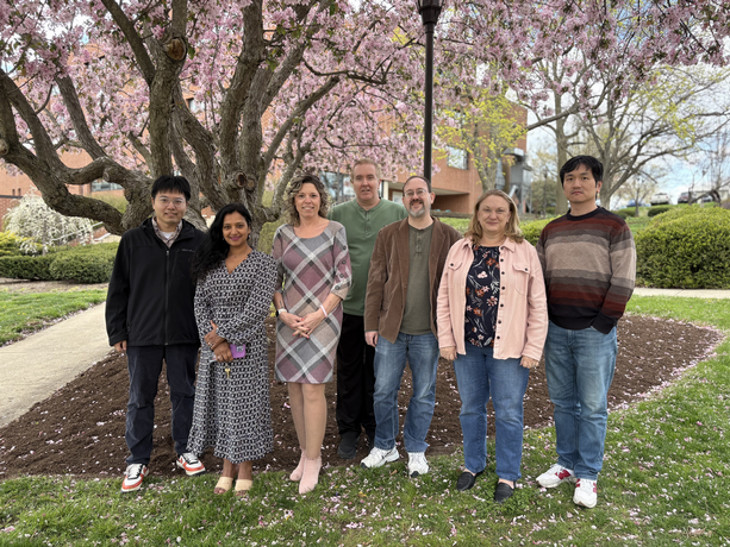
From left to right: Dr. Zhongxiu Yang, Dr. Nazli Hardy, Mrs. Tonya Pyles, Dr. Gary Zoppetti, Dr. Chad Hogg, Dr. Stephanie Schwartz, and Dr. Jingnan Xie
The Department of Computer Science is offering group tutoring both in person and digitally. When tutoring is held, the tutor will be in Roddy 136, helping students on a first-come, first-serve basis. They will also be available through Zoom, Meeting ID: 959-6169-3862 and Discord.
By Course:
|
Course |
Days |
|
140 |
Monday, Tuesday, Wednesday and Thursday |
|
161 |
Monday, Tuesday, Wednesday and Thursday |
|
162 |
Monday, Tuesday, Wednesday and Thursday |
|
330 |
Monday, Tuesday, Wednesday and Thursday |
|
340 |
Monday, Tuesday and Thursday |
|
362 |
Monday, Tuesday and Wednesday |
|
366 |
Monday, Tuesday and Thursday |
|
380 |
Tuesday and Thursday |
|
420 |
Monday and Tuesday |
By Day:
|
Day (Time) |
Courses |
|
Monday (5PM-8PM) |
140, 161, 162, 330, 340, 362, 366, 420 |
|
Tuesday (5PM-8PM) |
140, 161, 162, 330, 340, 362, 366, 380, 420 |
|
Wednesday (5PM-8PM) |
140, 161, 162, 330, 362 |
|
Thursday (5PM-8PM) |
140, 161, 162, 330, 340, 366, 380 |
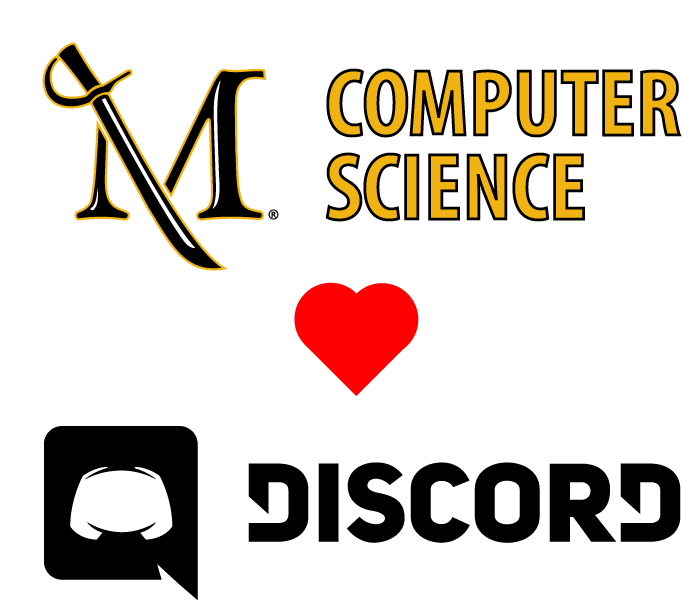
The Department of Computer Science has a Discord Community which all students enrolled in Computer Science or Information Technology courses are encouraged to join. Discord is a social platform where people can collaborate and socialize together in text and/or voice channels.
We have premade channels for all courses, social activities, troubleshooting, and more. You can download Discord to your computer, phone, and/or tablet through your device's respective App Store or from https://www.discord.com
To join the Computer Science Department Discord Server, click this button:
Trying to get your computer set up for your Computer Science class? We have guides to help you!
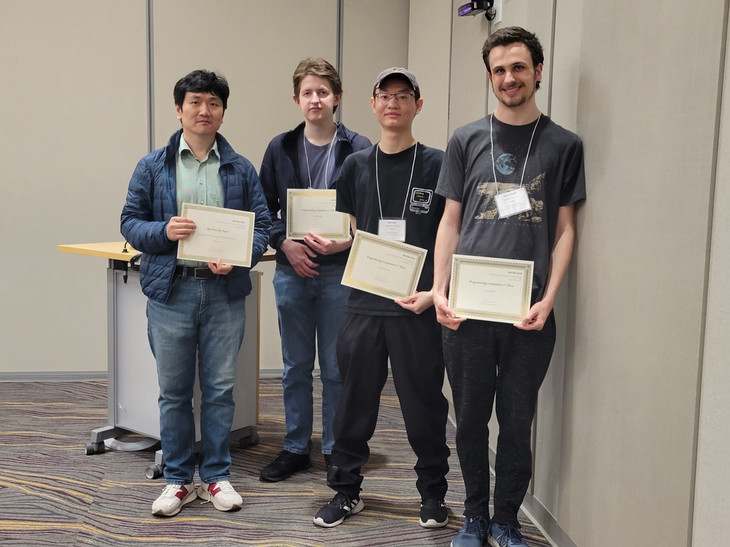
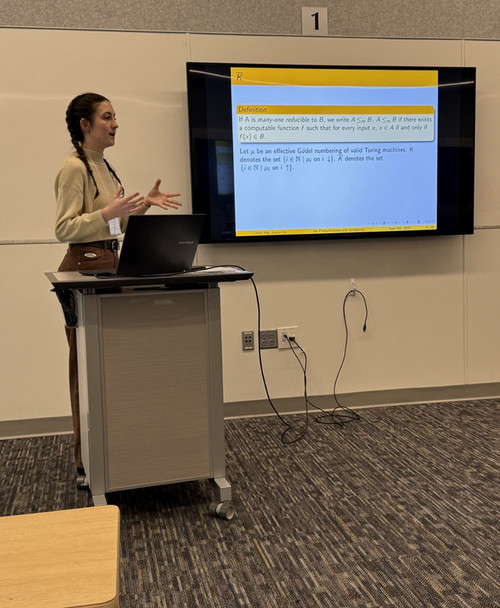
Congratulations to our programming teams on a great performance at the PACISE competition on Saturday, April 5th! The Miller team of Marshall Feng, Evan Magill, and John Hershey won first place out of 19 teams and we think the S'Ville team of Lincoln Craddock, Zac Tawfick, and Tristan Rush came in 4th.
And our very own Dr. Xie won the Best Faculty Paper Award! Emily Riley and Dr. Yang also gave great paper presentations.
Congratulations to all!
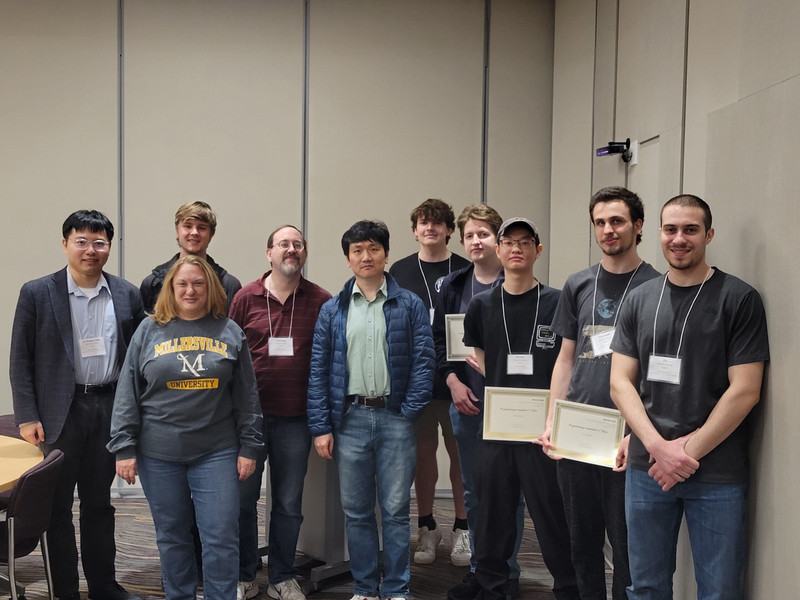
Congratulations to Zacaria Tawfick, Lincoln Craddock and Tristan Rush!
Among the 8 states, 20 universities and 31 teams our team received 2nd place in the programming competition at the Consortium for Computing Sciences in Colleges (CCSC).
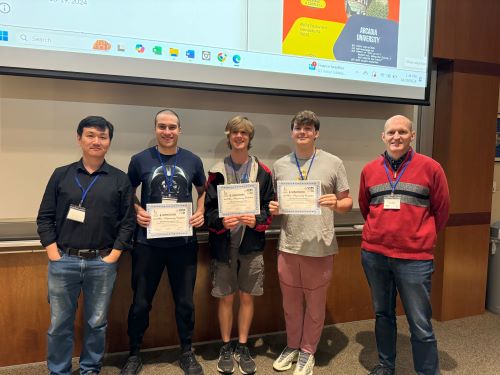
Marshal Feng, John Hershey, Evan Magill, Tristan Rush, Lincoln Craddock, and Zacaria Tawfick represented Millersville at the 2024 edition of the International Collegiate Programmig Competition. The team of Marshall, John, and Evan won first place at our competition site.
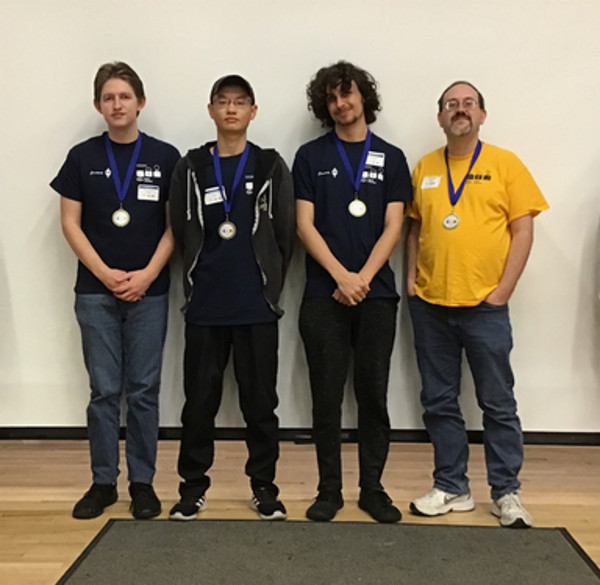
If you are a Millersville University Computer Science Alumni, please update your contact information.
“Your life is your story, and the adventure ahead of you is the journey to fulfill your own purpose and potential.” – Kerry Washington